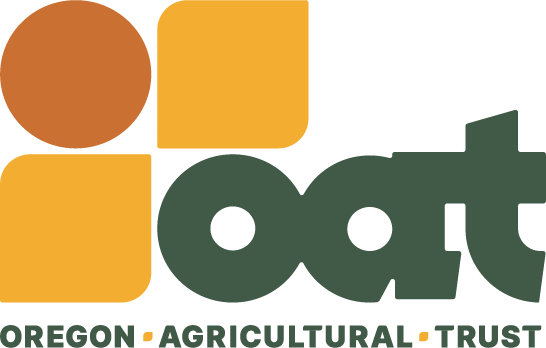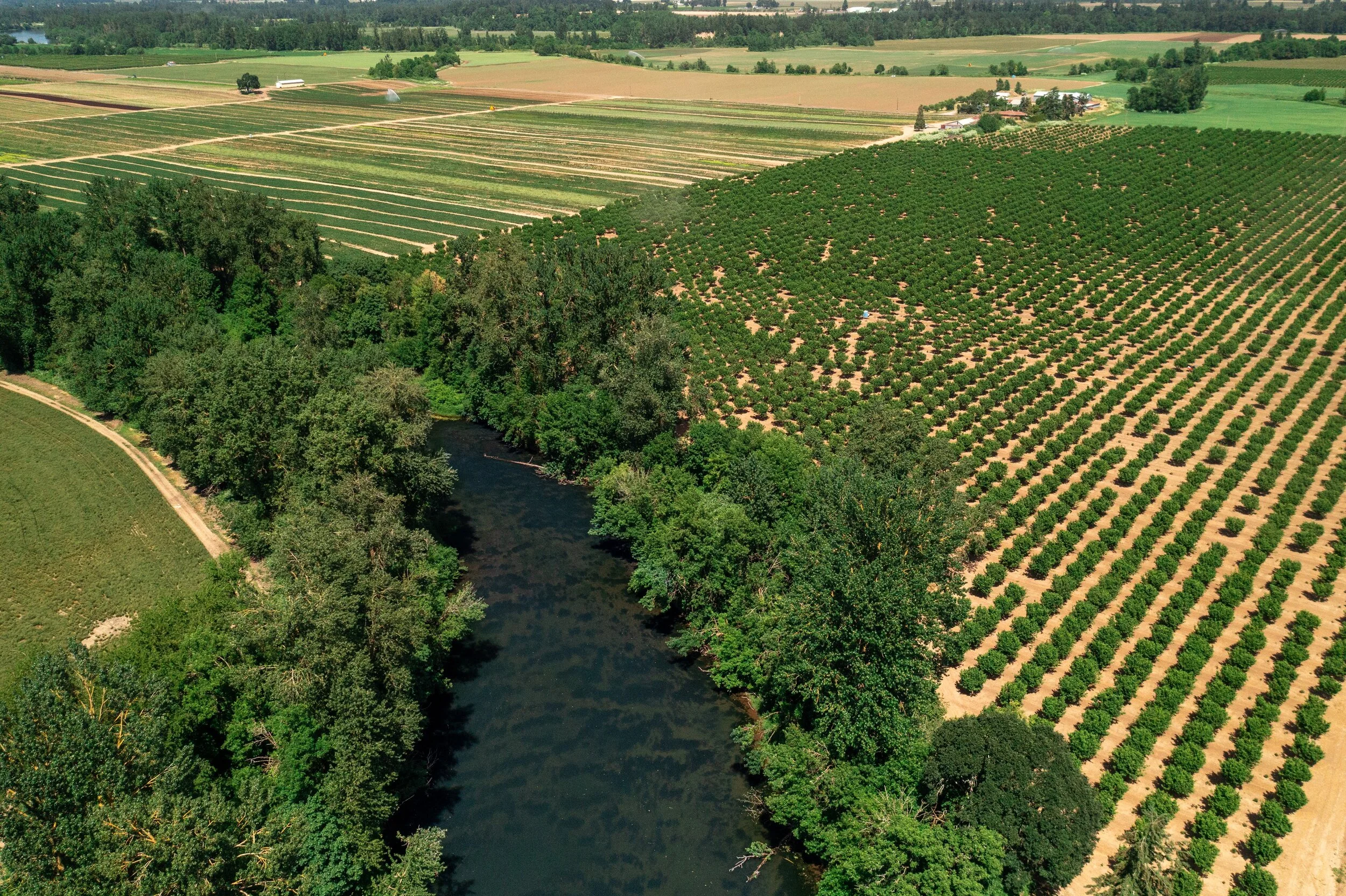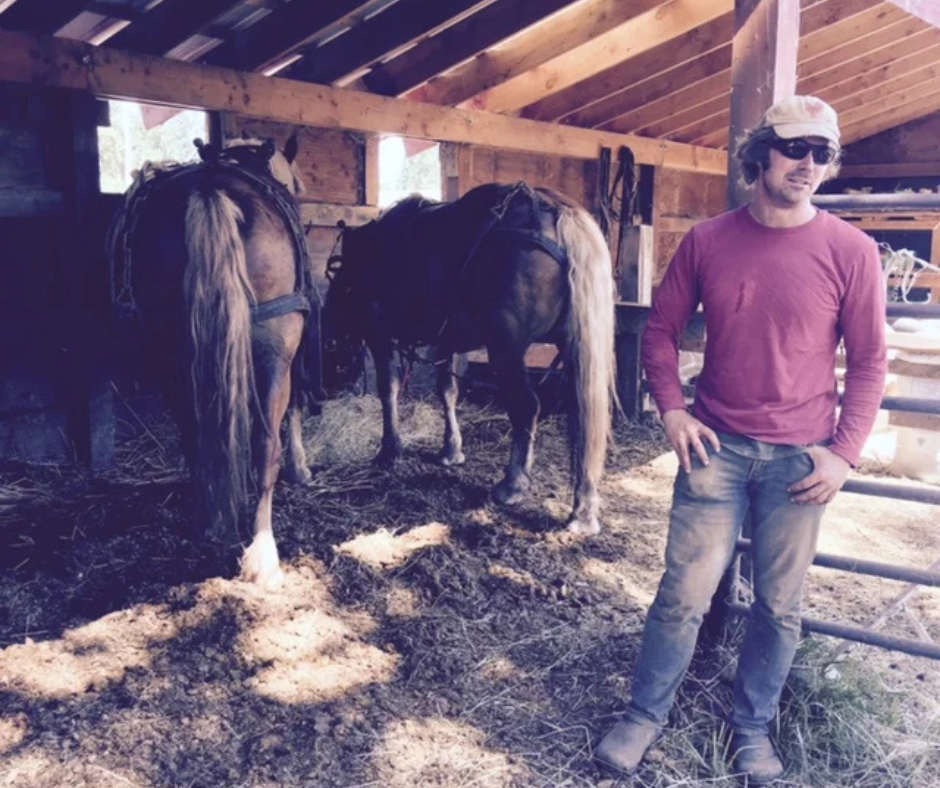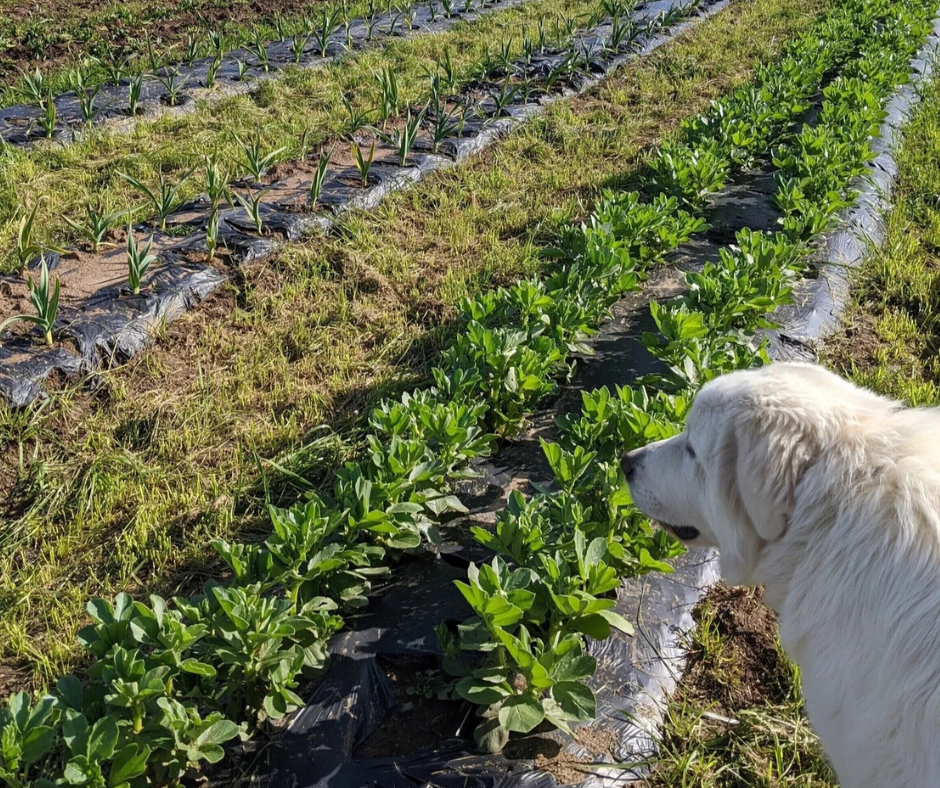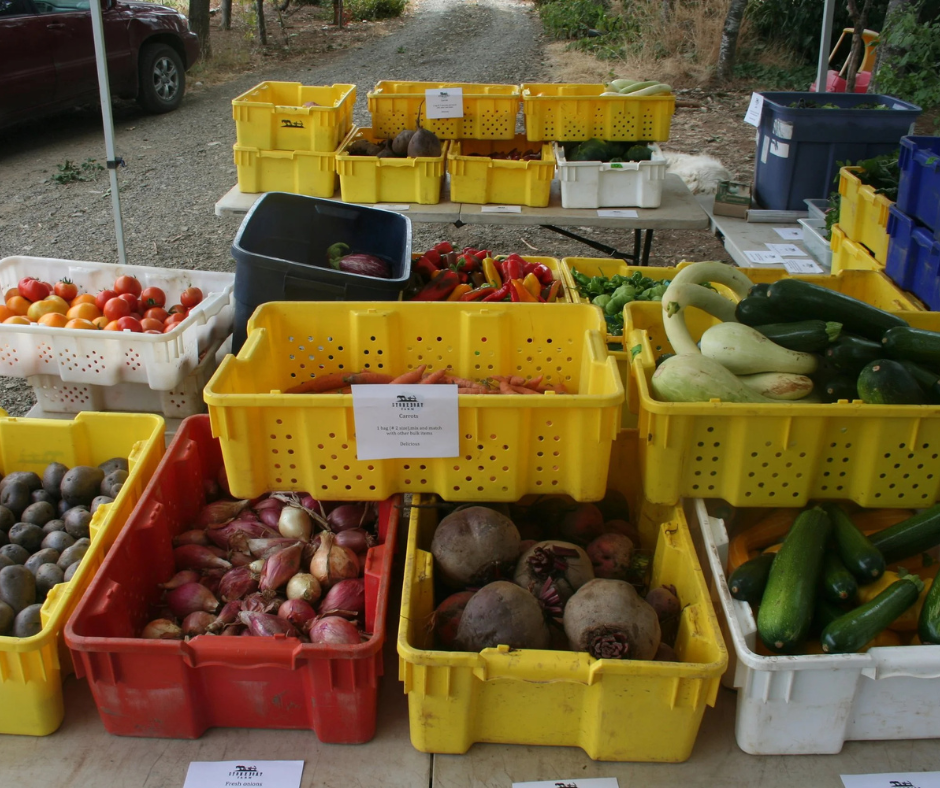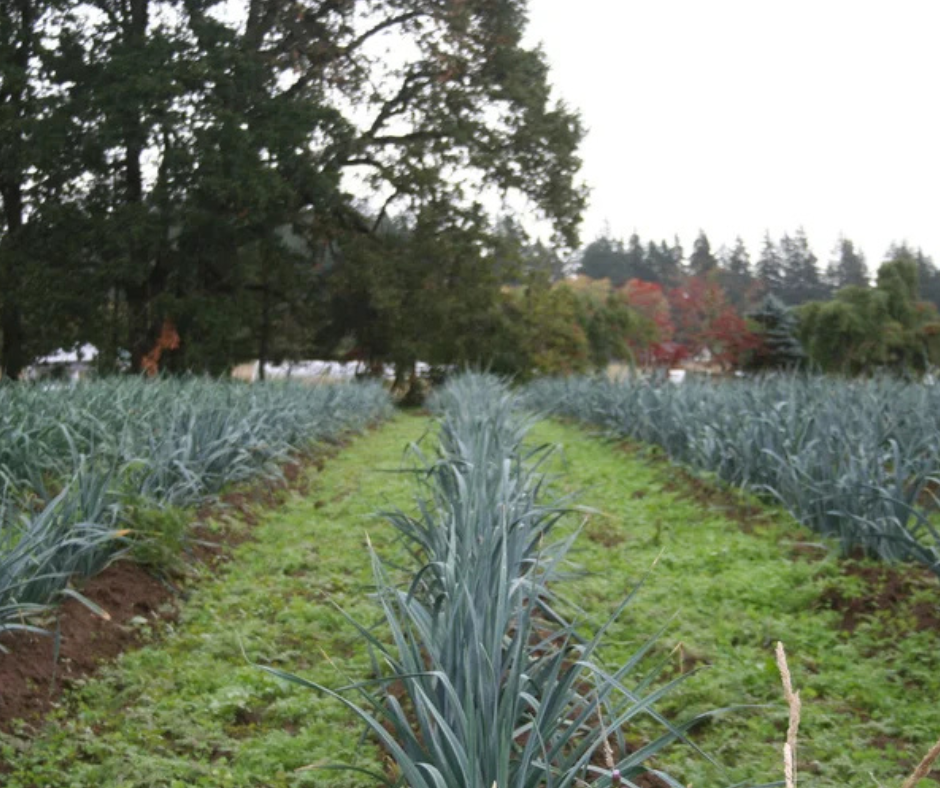Photo of Aaron Nichols with horses at his farm
We recently spoke with farmer Aaron Nichols of Stoneboat Farm about development pressure on farmland and the challenges of farming on the edge of two cities: Hillsboro and North Plains. Aaron is a first-generation farmer in his 11th season on this land. He grows a wide variety of vegetables and sells them through a CSA business, farmers markets, and wholesale accounts.
I can see both Hillsboro and North plains from my farm. Both of those cities are looking to expand their UGBs [urban growth boundaries]. They want to expand because they feel that this land is “just sitting here” - vacant, in their minds. I think there’s an overriding belief in both Hillsboro and North Plains and other cities, that the farmland around them is land for them to expand on, but the state stands in the way, or these annoying citizen groups stand in their way.
Trust me, as a farmer there is almost no better land. We are not going to find a better use than farming on these Missoula flood soils. It's just not there. We need food. We don't need data centers.
By far, to me, UGB expansion is the biggest threat to the farming community in my specific area. If things were to expand, it would cut us off from the rest of the farmland. We probably would have a narrow corridor between North Plains and Hillsboro. But Hillsboro is rapidly looking to take that land. If they had it, we would be land locked. It would be impossible for me to leave my farm and to get to any other farm country without driving through the city. So technically, my area would still be a farming area, but it would be very hard to farm.
We see a lot of very expensive houses going on to farmland here. It's the way our land is headed if we don't do something. Being surrounded by rural residential estates would be a problem for a lot of reasons. It means that everyone around me would see farming as conflicting with their residential use. They would see me spreading fertilizer, starting early, having the crew members here early, and having my CSA pickups as getting in the way of their pastoral countryside. They want the view of farmland but without the hassle of farm uses. As a result, more and more land is taken out of farm use until it’s just massive, expensive estates.
The even bigger issue, though, is that the loss of this farmland means the loss of farm infrastructure. So for the four guys with combines here in the last little section of farmland, one of the two seed cleaners in the county closed, and the big fertilizer dealer closed. So they're already driving pretty far to cleaners and supply stores, but at least they can still drive their grain trucks mostly on country roads. They can still get their combines from field to field on roads where at least some of the people expect there to be combines, and they're not driving for miles around turns with a combine that's extending a few feet into the other lane.
I suppose there's an outside chance that people come to the realization that there is a real need for protecting farmland and for feeding ourselves in the future. We see that the food that we're bringing in now from other countries and other regions is not a fully reliable source. You're not going to survive on that forever, right? We need to grow more here.
We have some great farmers here, so protecting both the land and the communities should be what we do. On my best days, my hope is that we come to that realization and that our senator and our house members, rather than saying, “Oh, thank you so much for farming,” will put in real protections for farmland. I hope they can say, “Before we expand anymore into the rural reserves, we have an overall plan that will keep farming here, and we understand what farmland needs.”
Buying a CSA, honestly, is helpful. You’re supporting farmers in farming. If you talk to your senator, and she happens to be talking about environmental policies, ask about supporting farmland policies that help farmers farm.
If we want to continue to be able to produce food locally, we need to preserve the farmland first. And secondly and very, very importantly, preserve the communities and the infrastructure that lets us farm, because those two things are what are going to allow us to farm enough to make a difference in our food production.
My farm isn't going anywhere. If they built a data center next to me, I would make sure to be as annoying as possible to that data center. And I will continue to farm as is my legal right.
